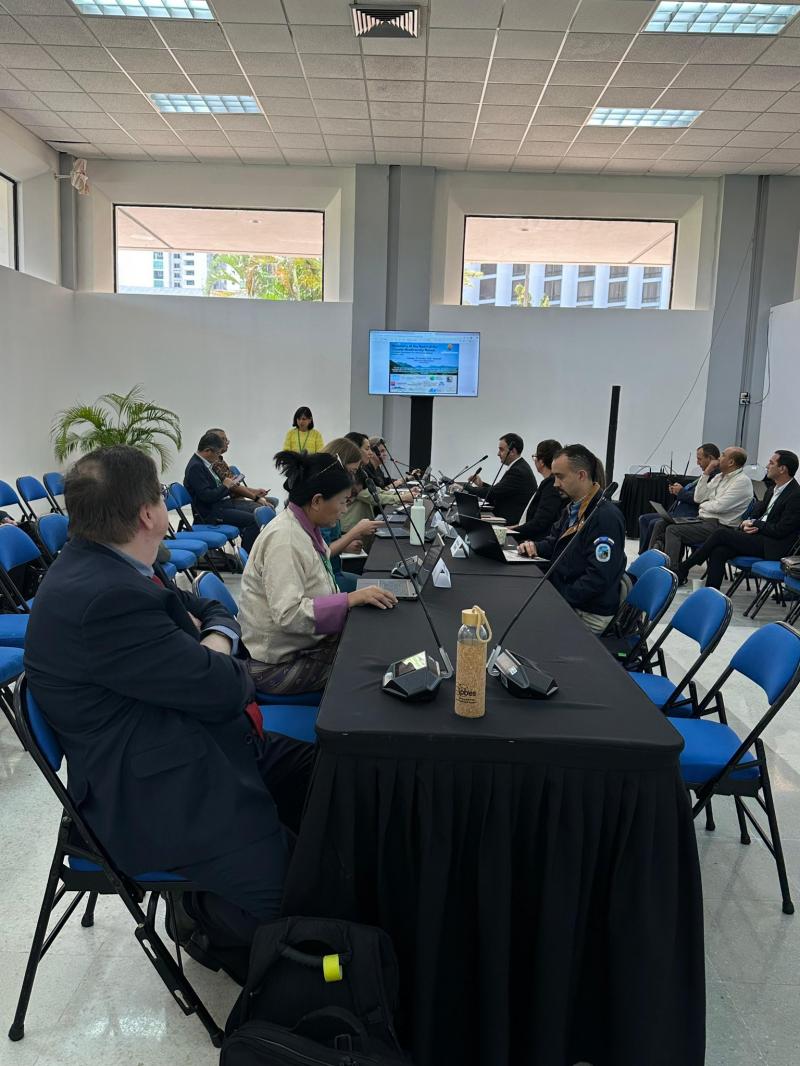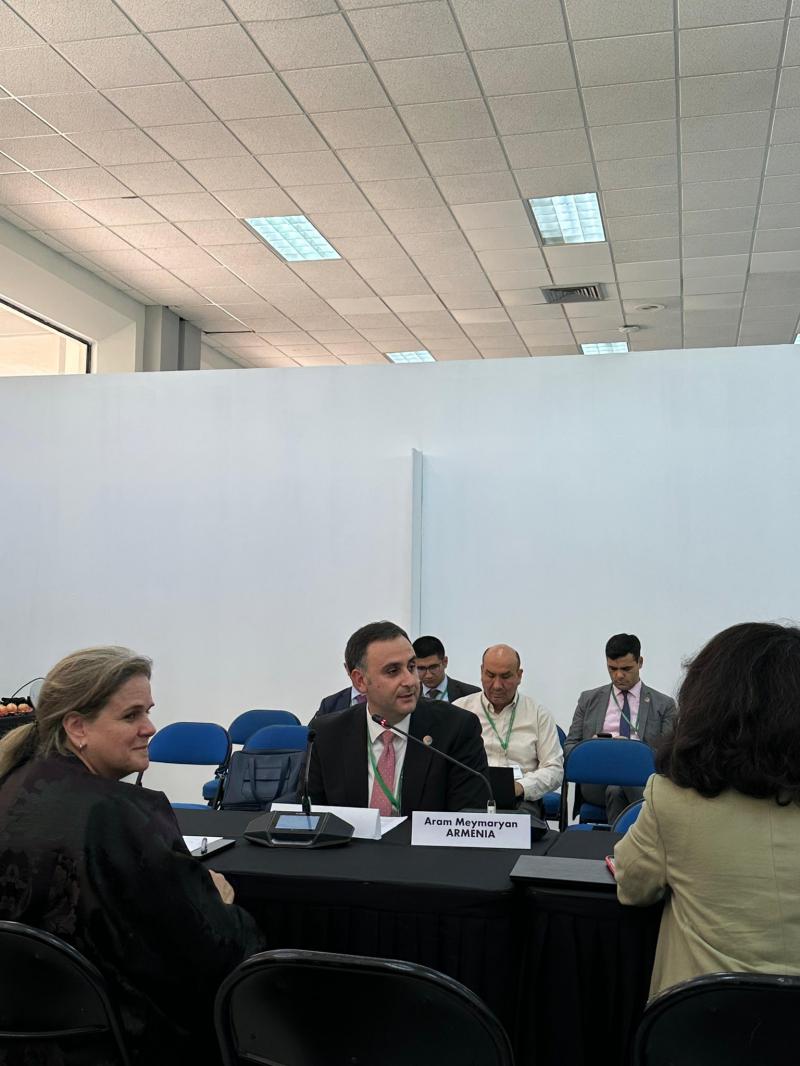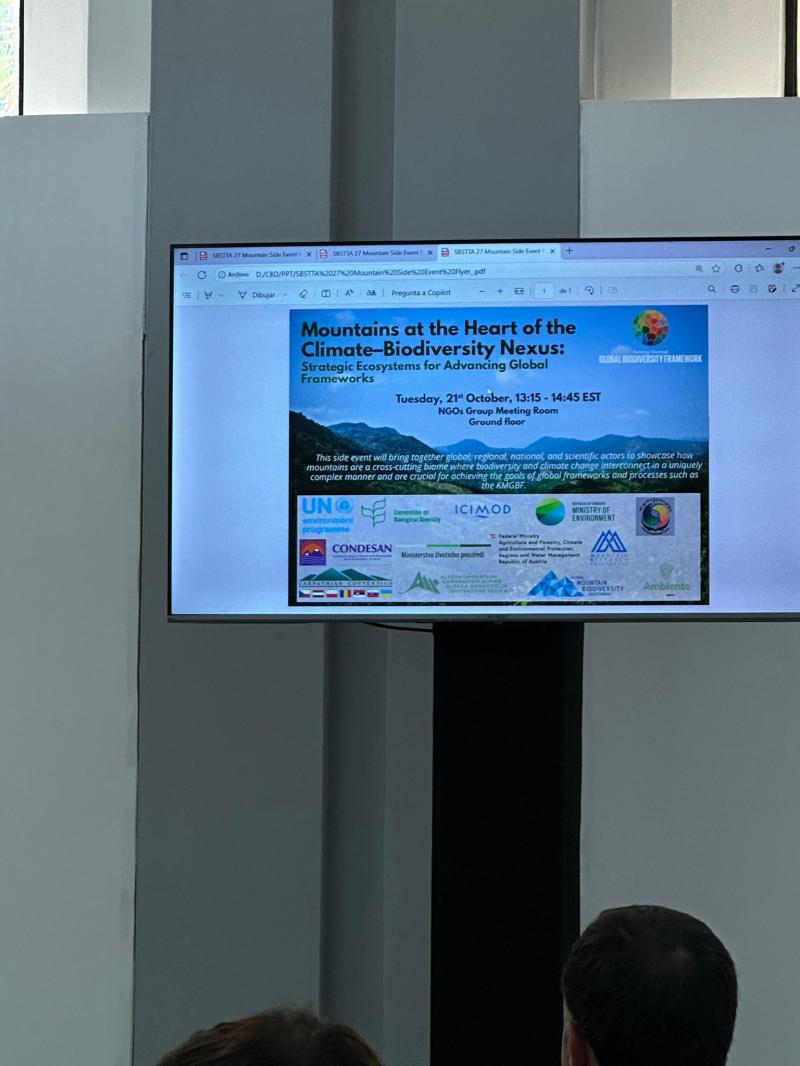Aram Meymaryan, Deputy Minister of Environment of the RA, is in the Republic of Panama, where he is participating in the 27th session of the Subsidiary Body on Scientific, Technical and Technological Advice (SBSTTA) of the Convention on Biological Diversity, as well as the first meeting of the Subsidiary Body on Article 8(j) and Other Provisions of the Convention.
Within the framework of the visit, the Deputy Minister also took part in a thematic event titled “Mountains at the Heart of the Climate-Biodiversity Nexus: Strategic Ecosystems for Advancing Global Frameworks,” where he delivered a speech.
In his speech, Deputy Minister Aram Meymaryan thanked the organizers, emphasizing that the “Mountains at the Heart of the Climate-Biodiversity Nexus” topic fully reflects the challenges and opportunities faced by the international community. He noted that mountain ecosystems are of strategic importance, as they regulate water flows, provide vital resources, food, and medicinal plants, preserve rich reserves of endemic species and genetic diversity, and safeguard the cultural heritage of millions of people.
The Deputy Minister stressed that mountains are also unique natural laboratories where the impacts of climate and ecosystem changes are most evident. According to global assessments, mountains constitute a significant portion of the Earth’s land area and support the livelihoods of around one billion people, yet they remain under growing pressure from climate change, land-use expansion, deforestation, overgrazing, and invasive species.
Aram Meymaryan emphasized that these global trends are also evident in Armenia. Altitudinal shifts of ecosystems are being observed, including the upward expansion of arid and semi-arid zones by several hundred meters, the reduction of alpine meadows, changes in species composition, and the decline in forest growth, which may result in the loss of more than 17,000 hectares of forest. These changes directly affect water security, agriculture, food production, and human health, underscoring the need to strengthen ecosystem resilience and implement adaptive measures.
In his speech, Armenia’s unique highland ecosystem, Lake Sevan, was highlighted as a successful example. The Deputy Minister noted that the measures taken to restore the lake’s water level, improve water quality, and conserve biodiversity demonstrate the inextricable link between mountain and water ecosystems. He emphasized that afforestation of upper basins, sustainable watershed management, and river protection programs have not only enhanced Sevan’s resilience but also showcased the vital role of mountains in regulating water flows, conserving biodiversity, and supporting community well-being.
Aram Meymaryan highlighted two strategic directions:
- Scaling up nature-based solutions in mountain basins through restoration, sustainable forest and soil management, and erosion prevention, contributing to enhanced water and climate resilience.
- Strengthening the role of mountain ecosystems in global biodiversity and climate policy frameworks, ensuring their full integration into national and international planning, monitoring, and reporting processes.









